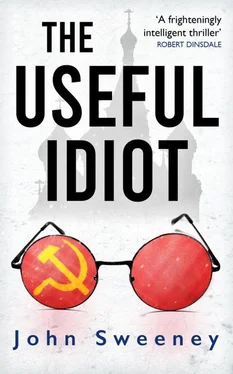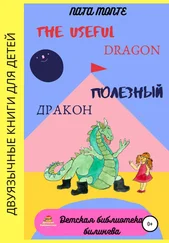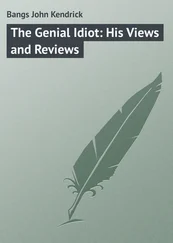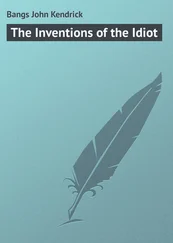John Sweeney - The Useful Idiot
Здесь есть возможность читать онлайн «John Sweeney - The Useful Idiot» весь текст электронной книги совершенно бесплатно (целиком полную версию без сокращений). В некоторых случаях можно слушать аудио, скачать через торрент в формате fb2 и присутствует краткое содержание. Город: London, Год выпуска: 2020, Издательство: Silvertail Books, Жанр: Исторический детектив, Триллер, на английском языке. Описание произведения, (предисловие) а так же отзывы посетителей доступны на портале библиотеки ЛибКат.
- Название:The Useful Idiot
- Автор:
- Издательство:Silvertail Books
- Жанр:
- Год:2020
- Город:London
- ISBN:нет данных
- Рейтинг книги:4 / 5. Голосов: 1
-
Избранное:Добавить в избранное
- Отзывы:
-
Ваша оценка:
- 80
- 1
- 2
- 3
- 4
- 5
The Useful Idiot: краткое содержание, описание и аннотация
Предлагаем к чтению аннотацию, описание, краткое содержание или предисловие (зависит от того, что написал сам автор книги «The Useful Idiot»). Если вы не нашли необходимую информацию о книге — напишите в комментариях, мы постараемся отыскать её.
* * *
The Useful Idiot — читать онлайн бесплатно полную книгу (весь текст) целиком
Ниже представлен текст книги, разбитый по страницам. Система сохранения места последней прочитанной страницы, позволяет с удобством читать онлайн бесплатно книгу «The Useful Idiot», без необходимости каждый раз заново искать на чём Вы остановились. Поставьте закладку, и сможете в любой момент перейти на страницу, на которой закончили чтение.
Интервал:
Закладка:
“Mr Jones?” asked Evgenia, softly.
“I’ll do it,” said Jones. “I will try and smuggle your ‘documents’ out. I will deliver the film to the British embassy Monday morning. I already have an appointment with them.”
“I knew you would,” said Evgenia, startling him by kissing him on the lips.
Winnie came up and said, “Move over, sister, he’s mine”, and the two women competed to hold him close.
As pacts with death go, Jones mused, this one was starting nicely. Perhaps pacts with death always did.
“Mr Jones, welcome to the International Workers of the World,” growled Haywood. A bottle was uncorked and Borodin poured vodka into six glasses.
“The sixth glass?” asked Jones.
“We’re waiting for someone.”
On cue came the sound of shoes scuffling overhead and a soft tap-tap. Borodin answered the tapping and the trapdoor was opened, revealing Fred Beal.
“You sure throw a mean punch, Mr Jones,” said Beal.
“Last time I saw this man, he was supping with the Cheka,” replied Jones hotly, his knuckles tightening into fists.
Haywood rested a hand on Jones’ arm. “Garry, Fred is one of us. Suits us to stage a fracas between ourselves every now and then to keep the Cheka on their toes.”
Beal smiled at Jones while Haywood made a toast. “To the Wobblies’ last stand. We’re going to tell the truth about the famine.” They clinked their glasses and emptied them.
Borodin’s mournful voice cut in. “I’ve heard that London is sick with worry about the rise of Hitler. They don’t want to offend him lest he create a pretext for a war. But they don’t want to offend Stalin either, if a war with Germany does break out. How confident are you that the British won’t sit on the fence?”
Borodin’s pessimism could always be relied upon.
“I am British,” said Jones. “I am confident that my government will do the right thing.”
“If they don’t accept the film reel,” said Borodin, “take your hat off. We will be watching the embassy. Hat on, the British are with us; hat off, they’re with Stalin.” Borodin paused, gravely. “And one more thing. You were right: if the Cheka catch you helping us, they will kill you…”
“There are times, Max,” said Jones, “when you are just too bloody gloomy for your own good.”
“In Russia, the truth is bleak.”
There was nothing to add to that, nothing at all.
Chapter Twelve
At ten o’clock sharp, Jones stood before the wrought iron gates of the British Embassy. Despite his hat, overcoat, scarf and suit, he shivered – and not just from the cold. The embassy stood directly across the Moskva river from the Kremlin. It had been the home of a fabulously wealthy Russian industrialist in the Nineteenth Century, seized during the Revolution and given to the British in the ‘20s to succour their good will. From this distance and this angle, mused Jones, you could be forgiven for thinking that the Kremlin was more fairy castle than seat of pitiless power. The forbidding walls and turrets seemed less oppressive from across the river, the white-walled palace within easier to see and more welcoming. Jones marked his observation down as an optical illusion. Immediately in front of him, the Moskva river was a field of ice, inching along and growling. That was more like it.
A Royal Marine in full dress uniform opened a side gate and Jones explained who he was and that he had an appointment with Ilver. In Jones’ briefcase was a selection of Evgenia’s lingerie and, beneath that, a round metal tin containing the film reel. The marine opened the gate, thought briefly about searching his briefcase, but decided against it; Jones’ spectacles conveyed an air of harmlessness, so in the end he didn’t bother. Jones followed the marine to the main door of the embassy proper. The door opened and behind it stood a preposterously young diplomat in an Oxford shirt, tie and sleeveless pullover.
“Good morning. Mr Jones?” The boy introduced himself as a Mr Plumley.
An ancient butler, a native Russian in a frock coat with skin as translucent as tracing paper, took Jones’ hat, scarf and overcoat and wandered off. Then, Plumley led Jones up a marble staircase and into a library populated with books no-one read. Once he was seated, Plumley offered Jones tea with milk, his voice squeaking as he did so. This was a very British luxury, unheard of in Russia, and Jones readily accepted.
A fire of two or three logs crackled in the hearth, throwing out not enough heat to warm the room. Jones wanted his coat back but the butler had disappeared. In one corner, a grandfather clock ticked; in another, a full length portrait of George V scowled down at the riff-raff. Paintings depicted soldiers in red defeating sundry foreigners: Blenheim, Waterloo, Agincourt.
Sipping his tea, Jones wondered how long his luck might last, how long it might be before the Cheka pounced and Borodin’s melancholic prediction came true. His thoughts moved to Attercliffe and his anxious wife. Attercliffe would be in the Lubyanka right now.
Then, yet again, he saw, in his mind’s eye, the woman in black laying her dead infant down in the snow in front of Lenin.
His teacup rattled in its saucer.
It was chilly in the room, true, but not that cold. Jones put cup and saucer to one side and studied his hands. They were trembling. Now that he knew something of the reality of Stalin’s Russia, now that he was carrying proof of the monstrous crime happening in the countryside in the briefcase by his feet, nothing seemed safe. In this country, you could get killed for that. In the Soviet Union you could get killed for nothing at all.
The grandfather clock ticked on. After a time, he glanced at his watch and realised that he had been left in the library for half an hour. The door to the library opened out onto the staircase and occasionally he heard voices, always muted, some speaking Russian, some English, wafting his way. After an hour and a half, he got up and went to the open door, coughing rhetorically. That drew no response – so, next, he coughed operatically. This time, Plumley opened a second door along from the library and peeked at Jones.
“Will Mr Ilver be long?” asked Jones.
“I’m afraid there’s rather a lot going on today. Mr Ilver is very pressed. If you’re not in a hurry, perhaps you should come back another day?”
“No, I’ll wait,” said Jones.
Embassies, visa offices, borders, police stations, banks: power, thought Jones, always treats its supplicants the same. Power eats other people’s time. He could have been a lowly petitioner at the Sublime Court, hoping to catch the eye of a vizier to Abdul the Damned. That he was a reporter in Stalin’s Russia in late January 1933, trying to smuggle a film out about the famine, made no difference. You could wait. Or you could leave. If you left, you lost.
It was one o’clock when Ilver entered the library, pipe in his mouth. “Listen, sorry Jones. God, what a day you’ve picked!”
“I’m sorry. What?”
“You’re a reporter, aren’t you? You haven’t heard?”
“No.”
Ilver’s laugh was mocking. “On this day, the 30th January 1933, Anno Domini, President Hindenburg has held a brief ceremony in his office. There is a new cabinet in Germany and the National Socialist German Workers Party have gained three posts. Herr Wilhelm Frick was sworn in as Interior Minister, Herr Hermann Göring is both Minister Without Portfolio and Minister of the Interior for Prussia and Herr Adolf Hitler is now the Chancellor of Germany.”
“Bloody hell,” said Jones.
“Exactly. So this isn't a good day for small talk, I’m afraid.”
Jones bristled. “The envelope I gave you contained a photograph of Soviet and German officers next to a tank, almost certainly taken in Russia. That is a breach of the Treaty of Versailles. The British subject, Mr Attercliffe, who entrusted that photograph to me, has ended up in the dock of a show trial as a co-conspirator in wrecking the Soviet economy. He faces a death sentence.”
Читать дальшеИнтервал:
Закладка:
Похожие книги на «The Useful Idiot»
Представляем Вашему вниманию похожие книги на «The Useful Idiot» списком для выбора. Мы отобрали схожую по названию и смыслу литературу в надежде предоставить читателям больше вариантов отыскать новые, интересные, ещё непрочитанные произведения.
Обсуждение, отзывы о книге «The Useful Idiot» и просто собственные мнения читателей. Оставьте ваши комментарии, напишите, что Вы думаете о произведении, его смысле или главных героях. Укажите что конкретно понравилось, а что нет, и почему Вы так считаете.












